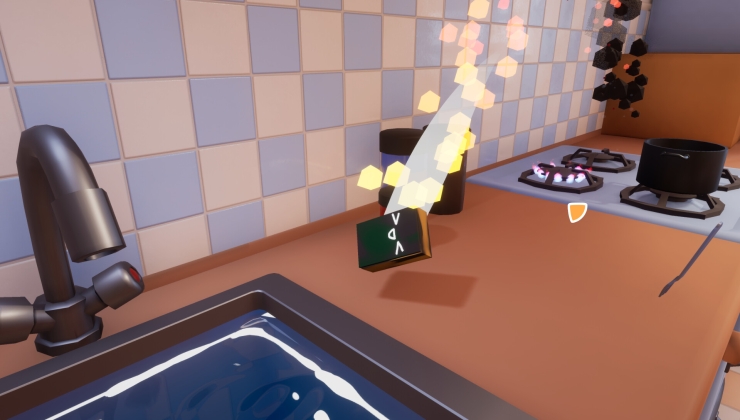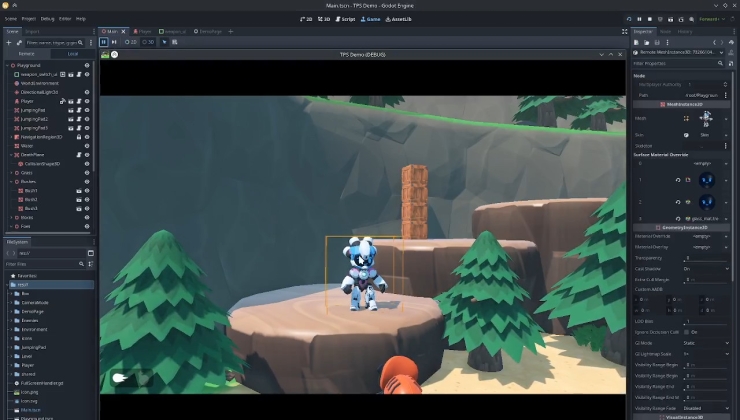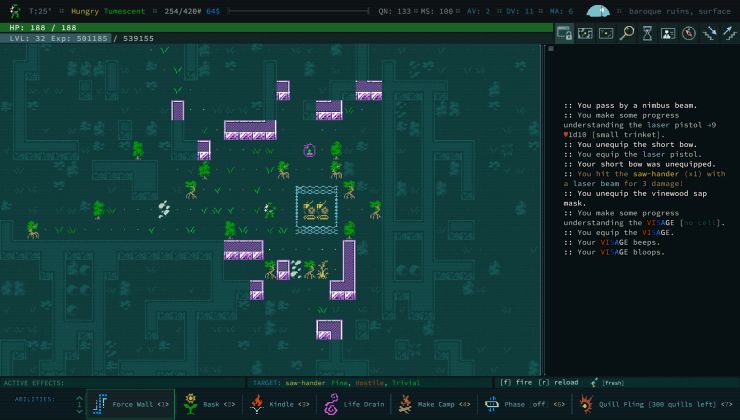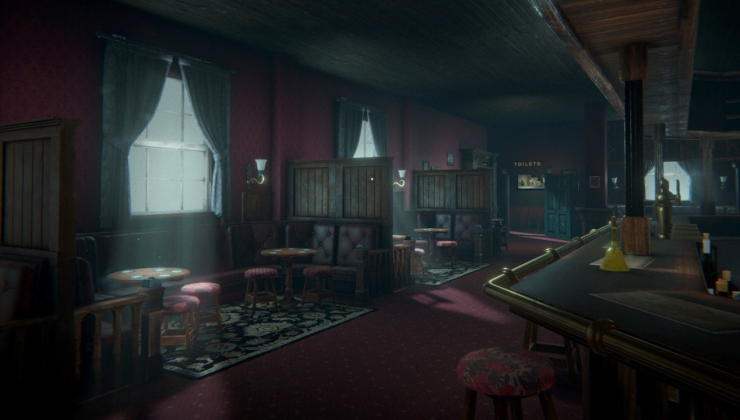Manjaro 24.0, based on Arch Linux, has been released pulling in a whole lot of upgrades across every part of the system. Despite a good few screw-ups in the past, Manjaro is actually a pretty reasonable choice for those of you who want a very up to date system with an easy install. It's even the Linux distribution Valve picked in their Developing for Steam Deck without a Dev-Kit guide.
Manjaro 24.0 Wynsdey brings with it GNOME 46.1, KDE Plasma 6.0.4 (with KDE Gear 24.02.02), Linux kernel 6.9 for the latest hardware support and Xfce 4.18. You also get Mesa 24.06, NVIDIA 550.78 and numerous updates to other software.

Pictured - Manjaro 24.0 Wynsdey, KDE Plasma
See their release announcement, along with some changes on their forum. Download from the Manjaro website.
Going by Valve's own survey and ours, Manjaro remains one of the more popular Linux distributions on the desktop. Have you used it recently, or are you using it now? Let me know in the comments how you're getting on with it.
At some point this year we're also going to see the Manjaro Gaming Edition which will come pre-installed on the Orange Pi Neo Linux gaming handheld.
Quoting: mylkamany problems come with KDE6, so it does not matter what form of release you have. kubuntu will face the same issues, but they have 5 more months to fix them, because they did not use it for 24.4Well, that depends. Any distribution's customizations can have an effect if they have to be tweaked for compatibility. It would be interesting if the same poll was on Arch and KDE Neon, some of the earliest adopters I can think of.
I don't think I had any unexpected issues with the multiple Arch machines I maintain. But yes, I made BTRFS snapshots of my root and home partitions as well as a file-level backup of the entire system before I upgraded. I also performed the upgrade in a Virtual Machine first, like I do routinely with system updates.
Last edited by 14 on 20 May 2024 at 2:27 am UTC
Quoting: 14I don't think I had any unexpected issues with the multiple Arch machines I maintain.Just expected issues?
Quoting: Purple Library GuyI have been running Arch since 2015, and if memory serves, have experienced two updates that prohibited me from booting and logging in normally.Quoting: 14I don't think I had any unexpected issues with the multiple Arch machines I maintain.Just expected issues?
There used to be a trend that started from Windows, but I think those same people got used to it and became fond of "reformatting" every 1-2 years. You know what? I'm not one of those guys. I do not like reconfiguring all my settings and preferences. You think you're done, but then you open a program you seldomly use, and now have to spend all this extra time you didn't alot any time for. I ran away from major OS upgrades which recommended reinstalls for a cleaner experience.
So yeah, a reliable way to roll back single files or an entire snapshot is my style whether a problem is expected or not. I do backups every week, and it wasn't Arch that started that habit. It was Windows 98 and my dad's teaching, further cemented by my IT infrastructure career.
I know you were only poking. Oh well. I responded.
Quoting: Purple Library GuyI've been running Arch for the past four years.Quoting: 14I don't think I had any unexpected issues with the multiple Arch machines I maintain.Just expected issues?
Last year, many people found out that Arch does not automatically upgrade GRUB; you need to do that yourself. This became an issue when a new GRUB version wasn't compatible with the old version for [reasons], I forget.
I also got my laptop serviced and after some testing was run in the BIOS, my bootloader was broken. I needed to re-install GRUB via LiveCD.
Two years ago, my sound suddenly disappeared. This was the pipewire-media-session➜wireplumber transition (or maybe pulse to pipewire, I forget). It took me several hours to figure out how to get my sound back, and in the process, I learned the basics of pulseaudio sound sinks. This knowledge continues to come in handy many years later as I regularly need to use Pavucontrol to reroute audio streams to the right audio device whenever I plug my laptop in via HDMI, as for some reason that causes it to become greatly confused with some programs (but not others). I don't have much love for audio configuration on Linux.
Over the past few years, several programs like Anki have no longer opened after being updated—and actually, Anki has been broken for a few weeks now. This underscores to me the value in separation between host system and user programs that Silverblue creates. I'd rather use Verified Flatpaks though, and Anki doesn't have much interest in adopting the package.
There have been a few other incidents not significant enough for me to remember in any detail.
Breakage on Arch tends to visit me every few months, but for a long time I've viewed breakage as inevitable on Linux. The only difference is I know how to fix the breakage on Arch, but I wouldn't have a clue if you put me in front of Ubuntu or openSUSE. Part of that is lack of experience; the other part is complexity.
...but I've been playing with Fedora Workstation/Silverblue lately, and I've had my perspective challenged.
Quoting: 14I know you were only poking.Yeah, the winkie emoji was supposed to be this subtle signal that I was joking around. Too subtle for some, it would seem.
Quoting: Purple Library GuyIs it worse if I was also aware it was a joke and took it seriously anyway?Quoting: 14I know you were only poking.Yeah, the winkie emoji was supposed to be this subtle signal that I was joking around. Too subtle for some, it would seem.
Probably. It's a slow week.
Quoting: pleasereadthemanualQuoting: Purple Library GuyI've been running Arch for the past four years.Quoting: 14I don't think I had any unexpected issues with the multiple Arch machines I maintain.Just expected issues?
Last year, many people found out that Arch does not automatically upgrade GRUB; you need to do that yourself. This became an issue when a new GRUB version wasn't compatible with the old version for [reasons], I forget.
I also got my laptop serviced and after some testing was run in the BIOS, my bootloader was broken. I needed to re-install GRUB via LiveCD.
Two years ago, my sound suddenly disappeared. This was the pipewire-media-session➜wireplumber transition (or maybe pulse to pipewire, I forget). It took me several hours to figure out how to get my sound back, and in the process, I learned the basics of pulseaudio sound sinks. This knowledge continues to come in handy many years later as I regularly need to use Pavucontrol to reroute audio streams to the right audio device whenever I plug my laptop in via HDMI, as for some reason that causes it to become greatly confused with some programs (but not others). I don't have much love for audio configuration on Linux.
Over the past few years, several programs like Anki have no longer opened after being updated—and actually, Anki has been broken for a few weeks now. This underscores to me the value in separation between host system and user programs that Silverblue creates. I'd rather use Verified Flatpaks though, and Anki doesn't have much interest in adopting the package.
There have been a few other incidents not significant enough for me to remember in any detail.
Breakage on Arch tends to visit me every few months, but for a long time I've viewed breakage as inevitable on Linux. The only difference is I know how to fix the breakage on Arch, but I wouldn't have a clue if you put me in front of Ubuntu or openSUSE. Part of that is lack of experience; the other part is complexity.
...but I've been playing with Fedora Workstation/Silverblue lately, and I've had my perspective challenged.
I'm a debian stable user.
Random breakage is rare.
I'm also a low tier tinkerer.
To me "expected issues" are issues I create by trying some ridiculous trickery I don't need.
Running it on an ARM processor breaks my standard browser.
Getting fingerprint scanning to work requires driver trickery.
Having a lot of privacy protections on your browser breaks websites.
Etc.
Quoting: pleasereadthemanualLast year, many people found out that Arch does not automatically upgrade GRUB; you need to do that yourself. This became an issue when a new GRUB version wasn't compatible with the old version for [reasons], I forget.If you got bitten by this, I suggest joining the mailing list. You'll know in advance if manual action is required. It is not noisy either. It is exactly the Latest News RSS feed on the main page: https://archlinux.org/
Last edited by sudoer on 21 May 2024 at 1:07 pm UTC
Quoting: 14I didn't, actually. I hadn't updated for a few weeks coincidentally, but I happened to read a post on reddit about it so I knew in advance. I already have the Arch News RSS feed in my reader, but Arch took several days to announce the GRUB issue. I followed the instructions and nothing went wrong on any of my Arch computers.Quoting: pleasereadthemanualLast year, many people found out that Arch does not automatically upgrade GRUB; you need to do that yourself. This became an issue when a new GRUB version wasn't compatible with the old version for [reasons], I forget.If you got bitten by this, I suggest joining the mailing list. You'll know in advance if manual action is required. It is not noisy either. It is exactly the Latest News RSS feed on the main page: https://archlinux.org/
The mailing list is a good suggestion.
Quoting: sudoerRunning systemd-boot for years and never had a problem, plus its configuration is so simple. Running (the often problematic in the past) GRUB in 2024 makes no sense to me (except you have an old motherboard), when for years most (common) distros use systemd, and you can switch from it to systemd-boot easily.I only run it because I understand it. GRUB has been (generally) reliable for me and at least when I break it, I know how to fix it. Same reason as Arch, actually. I can't be bothered to learn a new bootloader, basically.
And I know Pop uses Systemd-boot, but Fedora and Ubuntu use GRUB. Linux Mint probably does too. So there must be a reason. I don't know about openSUSE, though.





See more from me